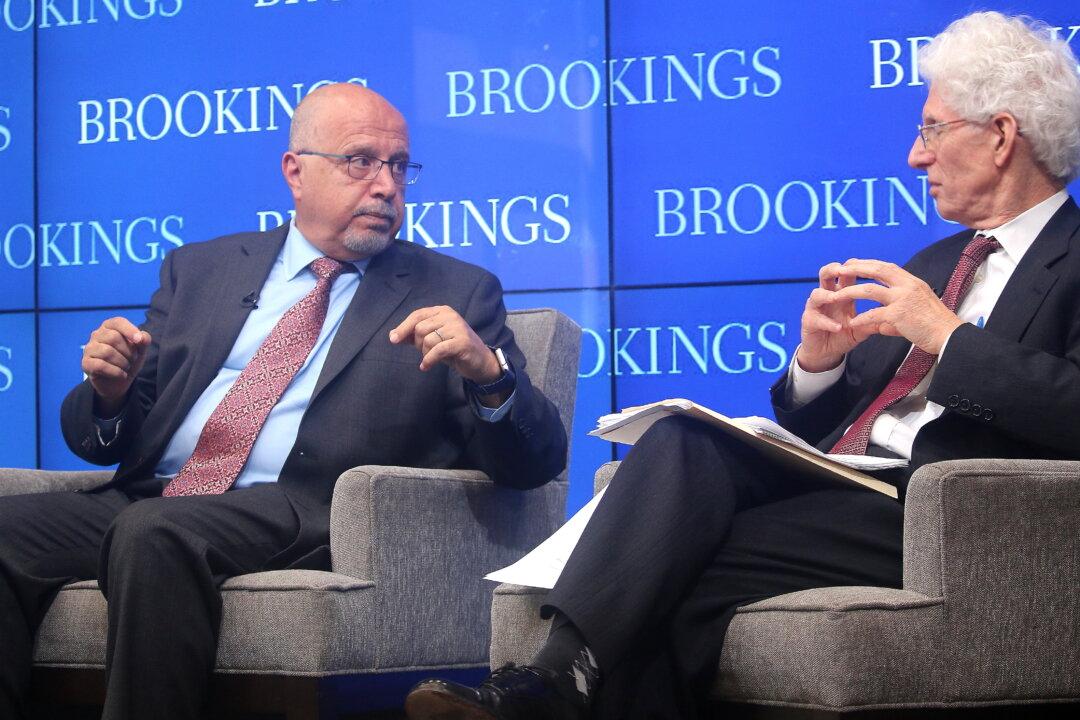WASHINGTON—After the June 12 shooting in Orlando, Florida, in a gay nightclub killing 49 people and wounding 53, one would expect that attitudes towards Muslims and the Islamic religion would harden or, at best, not improve any.
The attack by 29-year-old Omar Mateen, was the deadliest attack in the United States since 9/11 in 2001. The shooter during the attack called 9-1-1 to announce his sworn allegiance to the leader of the Islamic State, Abu Bakr al-Baghdadi.
Survey data gleaned from large probability samples, reached by mail and telephone, show a stunning result. Americans on a whole became more favorable towards Muslims and even towards the religion Islam shortly after the Orlando shooting, not less as one would expect. In fact, this trend had been progressing since last November.
Brookings nonresident Senior Fellow Shibley Telhami summarized the findings of three public opinion surveys on American attitudes towards Muslims and the Muslim religion, on July 11, at the Brookings Institution. Two of the three surveys were planned ahead of time: November 2015 and May 2016. After the Orlando shootings, Telhami saw a good opportunity to conduct a third survey, about two weeks after Orlando (June 24-June 30) to measure possible shift in attitudes.
Brookings partnered with the Sadat Chair for Peace and Development at the University of Maryland to sponsor the three surveys. The May survey consisted of 855 respondents with a margin of error or 3.4 percent. The June survey had 1,312 respondents with a margin of error of 2.7 percent.
Surprising Finding
The key finding is that the percent favorable towards Muslim people was 53 percent in November, 58 percent in May, and 62 percent in June, following the Orlando shooting. The percentage unfavorable showed the reverse trend: 46, 41, and 38 percent, respectively.
The Orlando shootings came six months after the terrorist attack in San Bernardino, Calif., where the two perpetrators swore allegiance to ISIS. That terrorist attack occurred in December after the November survey.
Americans tend to be more favorable toward Muslim people compared to the Muslim religion, but even there, the same trend can be discerned. Percentages of favorable attitudes towards the religion progressed 37, 42, 44, and the unfavorable percentages decreased in a reversed pattern.
It is well to remember that even though favorability toward the religion has improved, the unfavorable numbers are substantially bigger than the favorable. The November survey found 37 percent favorable versus 61 percent unfavorable. In the June survey, it is still 11 points bigger: 44 percent favorable versus 55 percent unfavorable.
Another question asked about whether the respondent identified with the statement, “most people in the West and the Islamic world have similar needs and wants, so it is possible to find common ground.” Again the percentages in agreement increase for Nov., May, and June, which were, respectively, 57, 61, and 64. This result lends more support that the above described trend was not a statistical fluke.
So, despite the “horrific mass violence perpetrated on American soil in the name of Islam” and an “American presidential campaign noted for its inflammatory rhetoric about Islam and Muslims,” Telhami writes in Politico, American public attitudes became progressively more favorable.
“Overall, the trend is obviously more favorable than what one might have expected,” Telhami said.
Party Affiliation Differences
However, this result may have more to do with contemporary politics than an enduring change in attitudes towards Muslims and the Muslim religion. Telhami suggests that the results may be explained in part by the stances of the presumed presidential nominees, Donald Trump and Hillary Clinton, and their supporters wishing to be in alignment, or in opposition, to the candidates.




